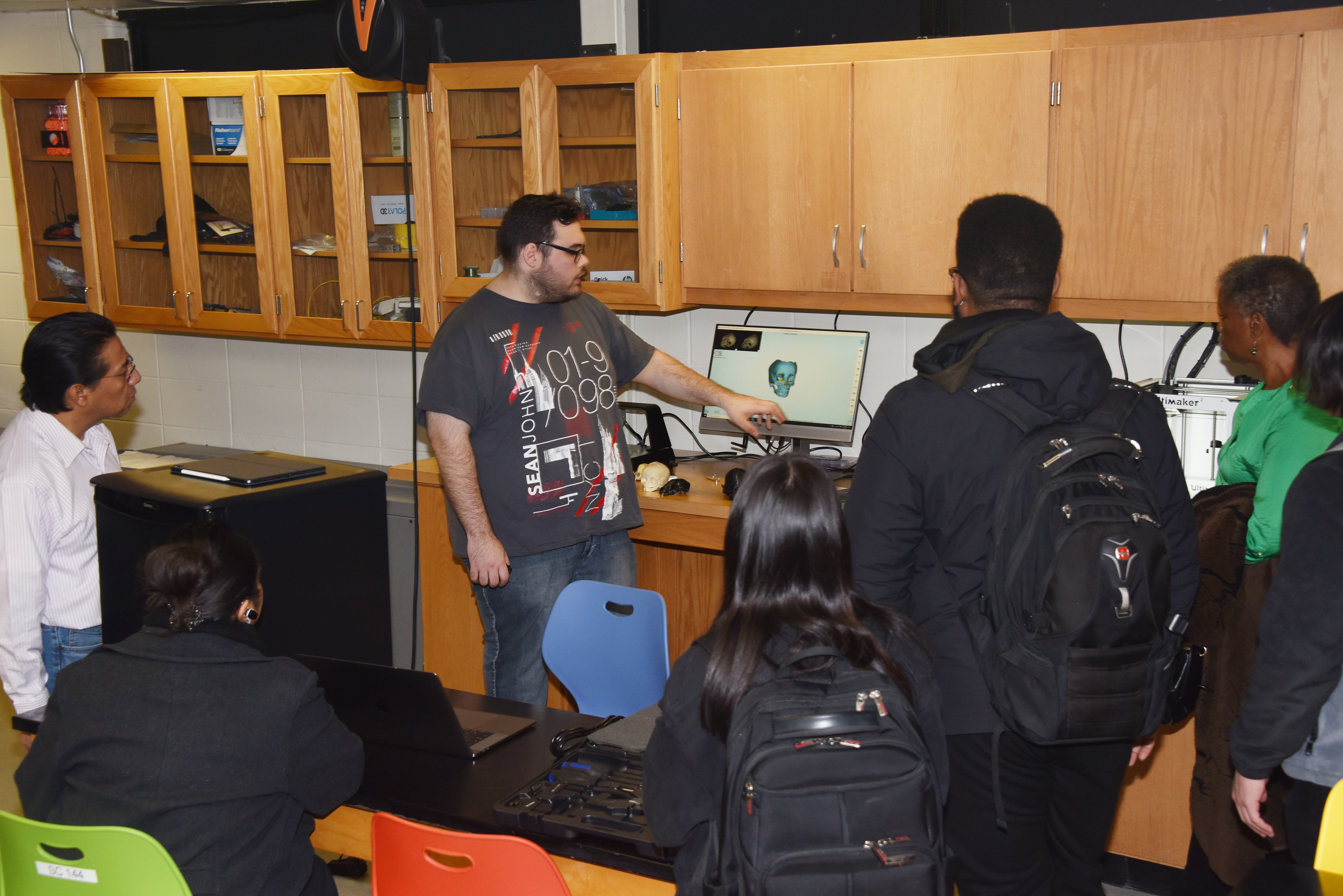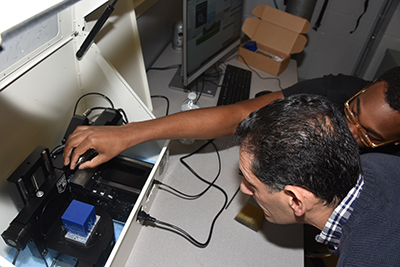
Makerspace established for student innovation
An innovation environment at Delaware State University has been established that promotes its priority of Student Success, providing students and faculty with creative space to “learn, teach, create and invent.”
The Division of Physics, Engineering, Mathematics, and Computer Science (PEMaCS) has launched a “Makerspace” – now operational and available to DSU students in Room 144 of the Mishoe Science Center North. The Makerspace provides students with technology resources and raw materials to inspire innovation.
The Makerspace offers many opportunities for ideation and hands-on exploration. Resources available inside the lab include:
- Large and small form factor 3D plastic printers.
- A 3D metal printer capable of printing steel and titanium.
- A desktop 5-axis CNC milling machine.
- A 3D scanner.
- A PCB printer to print and solder electronic circuit boards.
- A drill press and other carpentry equipment.
- Soldering stations.
- A.Virtual/Augmented Reality room
The space is student-centered and student run. Rodrigo Lapenne and Jameel Brice, junior and sophomore IT majors, respectively, will monitor the Makerspace and work with the DSU community to develop projects. Both students have been trained on the new 3D metal printer and have acquired skills to use the other equipment in the facility.
In addition, the students have received safety training from DSU’s master machinist, Nick Quigley. Those interested in using the lab will be required to receive a safety training course.
Dr. Marwan Rasamny, chairperson of PEMaCS, is hopeful that this Makerspace inspires creativity across campus. “We envision this space empowering our community to collaborate and innovate,” he said. “Our expectation is that students and faculty from all disciplines will utilize the space to learn, teach, create, and invent. This space would not have been possible without the support of Title III (funding).”
“The initial goal of the Makerspace was to create an informal setting that would foster peer learning and synthesis across a number of subdisciplines within Computer Science,” said Dr. Gary Holness, associate professor for PEMaCS. “We broadened our scope to include multiple disciplines upon considering skills required in the future marketplace; integrative skills will prove invaluable in the workplaces, labs, and enterprises of the future.”
Dr. Rasamny said the facility provides an environment in which students can design, prototype, fabricate, and test integrative projects. “It is generally understood that continued relevancy in the workplace requires continuing education,” he said. “While this can take form as formal classroom instruction, it typically includes a fair amount of self-study, tinkering, and informal learning among peers – avenues to discovery that the Makerspace offers.”
Dr. Holness noted that integrative projects are certainly not limited to STEM.
“There are many exciting opportunities at the seams between different disciplines. Examples of this include apparel science, computer science, and engineering physics,” Dr. Holness said. “Imagine a team of students working on specialized clothing embedded with sensors that communicate wirelessly the condition of a recovering heart surgery patient who has returned home from the hospital. Or, perhaps a team of students in art, history and computer science collaborating on a virtual walkthrough of important, but lesser-known historical events.”
For more information about the Makerspace, contact Dr. Rasamny at (302) 857-7896 or at mrasamny [at] desu.edu.

